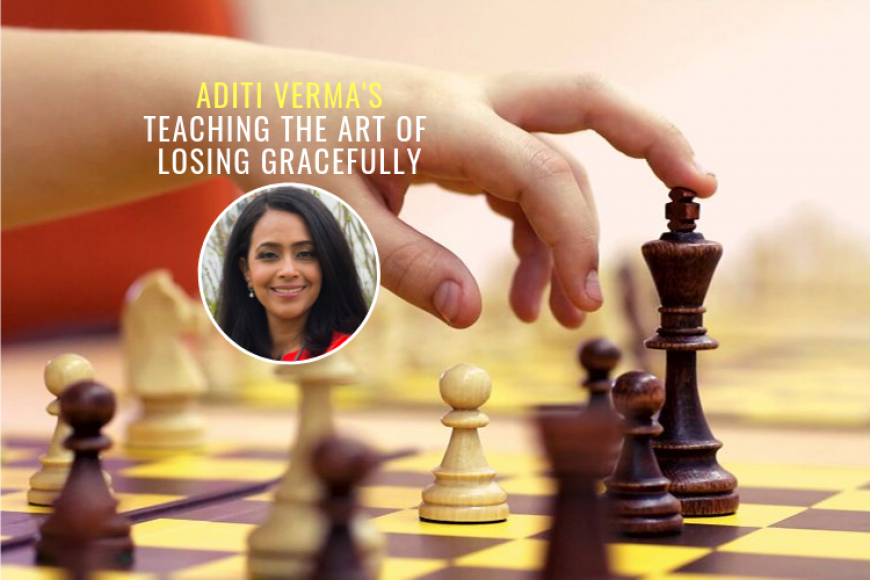Teaching the Art of Losing Gracefully

While he was in his chess-playing phase, it had become a tradition that before going to bed at night, either I or my husband would play a game of chess with him. One night as we were playing a game of chess, this is what happened:
Logan: "Come on Mom! Make your move. You are thinking for too long."
Me: "There is nothing wrong with thinking. I want to make my moves carefully. Ahh, here we go, checkmate!"
Logan: "What? How did this happen? I was winning."
Me: "Well you are in a checkmate. Looks like I won this time."
Logan had tears in his eyes and things took a turn for the worse. He started yelling, crying, and throwing the chess pieces away. It was hard for him to lose to someone he always won against. I felt mixed emotions of anger and sadness with his reaction.
That night I reflected on the incident and the next morning I came up with strategies to help him handle defeat well.
As a parent and Certified WISDOM Coach for kids, I am always focused on keeping my children’s self-esteem and self-confidence high. I believe self-esteem and self-confidence are essential to feeling happy and worthy. Children with high self-esteem have higher self-worth and are more prone to try new things and handle failures and rejections better. Here are a few things I tried with my son:
1. Demonstrated Gratitude
I shared with my son how grateful I was to have the opportunity to play chess with him. As a result of his interest in chess we all learned something new as a family. Playing with him often helped me learn from him and get better. This made him realize that there was so much more to the game of chess than just winning or losing.
2. Discussed benefits of failing
I shared that although I failed many times while playing chess with him, I didn’t give up. I focused on the quality time we both were having together and that made the whole experience fun. At the same time, I focused on improving myself.
3. Did not let him win
We played many more games after and we played it fair and square. I never let him win just because I didn’t want him to be sad. It was important for him to experience losing again so he could learn to cope with it. He did win some games and I also won some more games.
4. Used the power of positive self-talk
I used the “Build Self Esteem and Self Confidence” program that I use as part of my coaching program to teach my son the power of positive self-talk. We learned to differentiate “losing” as an incident that doesn’t define him. Instead of saying “I am a loser,” we learned to say, “I lost this game. However, there are many other games that I could play and potentially win.”
“Build Self Esteem and Self Confidence” program is all about developing self-esteem and powerful self-confidence. With positive self-esteem, children feel good about themselves and trust themselves. They face the world with the belief system of “I am worthy.” With positive self-confidence, children believe in themselves and their ability to achieve goals. They are not stopped by failure, obstacles or fear and are less susceptible to peer pressure.
Building Self-Esteem and Self-ConfidenceStarts Wednesday, October 30 |





